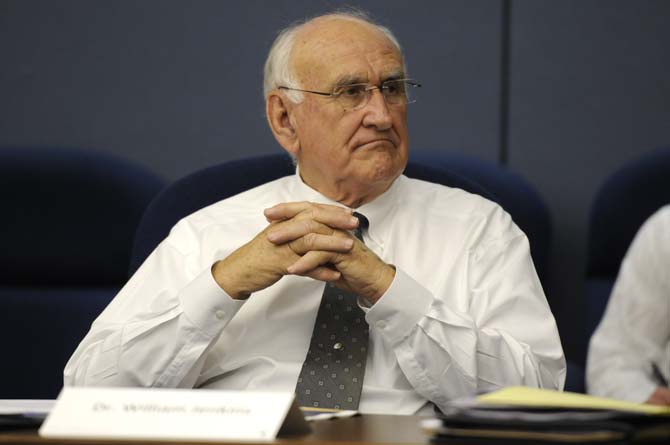LSU President-elect F. King Alexander said Tuesday the Transition Advisory Team was on track as the team took a closer look at how the University can capitalize on research opportunities to bring economic change to Louisiana.
The University is tackling reorganization issues the right way, Alexander said. Consolidating, reducing costs and saving money is the best way to protect the University’s research and overall education, which he said is a top priority.
Secretary of Louisiana Economic Development Stephen Moret said while the state’s economy has relied mostly on traditional industries like agriculture and chemical manufacturing in the past, those job areas have been declining, and higher education is the future of developing and retaining Louisiana’s intellectual talent.
“The ultimate frontier for economic development in Louisiana will be realized through the development of higher education,” Moret said. “The long-term, big picture involves LSU.”
Companies can partner with higher education institutions to spearhead cutting-edge research projects that set the state apart from others. Instead of focusing solely on graduation rates, keeping graduates in the state is what would make Louisiana more economically competitive.
This idea harkens to the recent deal between IBM and the University that is expected to create new educational opportunities and 800 new jobs.
The University has also partnered with Electronic Arts and ConAgra, initiatives that will yield millions of dollars and several significant research contributions, according to a Louisiana Economic Development publication.
Moret identified six focus areas that he said could produce 255,000 to 400,000 Louisiana jobs over the next 20 years, which he said would help achieve target population and tax revenue growth.
The focus areas emphasize the importance of digital media and enterprise software, clean technology, advanced manufacturing, life sciences, water management and next generation oil and gas.
Higher education, especially at the flagship university, can contribute to the evolution of these fields by pushing toward greater research and intellectual talent retention, Moret said.
Universities should find what they’re good at and capitalize on those fields, said Aspen Institute CEO Walter Isaacson. Areas like coastal issues and petrochemicals are a couple places LSU has an upper hand, so focusing on those research topics would be most beneficial, he said.
“The long-term, big picture involves LSU.”









